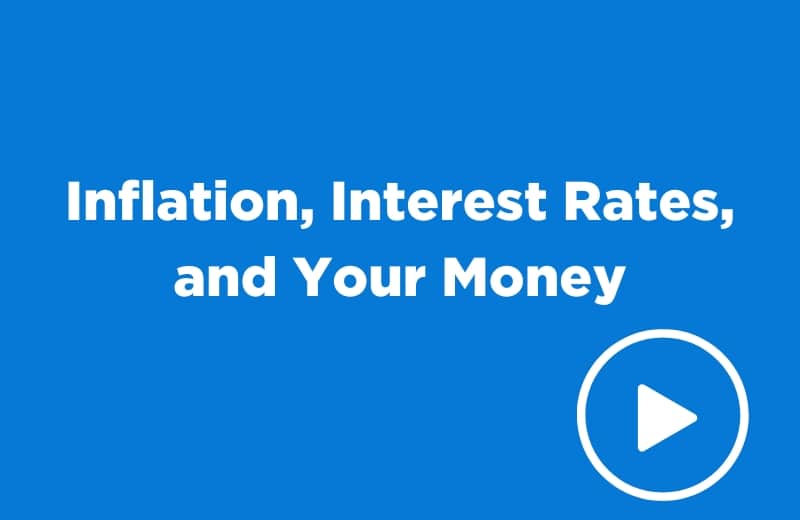Inflation – what everyone has been talking about for the past few months. We feel it everywhere in our daily lives, but for investors the big question is how will it impact your overall financial picture? And more to the point, as the Fed pulls levers to rein-in inflation, what will that do to markets and to consumer debt?
First things, first – with the November inflation reading at 6.8%, everyone is having 1970s vibes and not in a good way. But a little perspective here – the average inflation rate for the decade was 6.8%. Individual readings were much higher, and it persisted for a very long time. Structurally, everything was different, and by the time the Fed acted in the 1980s, drastic measures were needed.
That’s not likely to happen this time around.
Many of the inflation issues we are seeing today have been caused largely by supply chain issues. And supply chain issues are resolving, only slower than anticipated. Core Goods inflation, which is the goods you buy daily, is most impacted by the problems in sourcing, and has experienced the massive uptick. Core Services inflation, the daily services you may pay for, is still pretty much flat.
This means that a return to normalcy should bring inflation down rapidly. The Fed has signaled its intentions to get more hawkish on inflation. In practice that means reversing the measures it put in place early in the pandemic to make it easy for businesses and consumers to get long-term loans.
This is the first step. The next step is to gradually increase short-term rates. Are there financial moves you should make to anticipate the Fed’s changes? Of course.
1. If you’ve been taking advantage of low credit card debt or have availed yourself of a new card that came with an introductory period of no interest charges, it will soon be time to pay the piper. Reduce balances now, or at the very least increase savings, so you can pay them when rates go up.
2. If you’re thinking about buying or refinancing a home, it might be a good idea to act on it. Higher rates may have some damping impact on the booming housing market, but unless you have excellent credit whatever you save in the purchase price you may end up giving back in interest charges.
3. With inflation still high and liquidity less easy to come by, companies will have a harder time with growth. Many investors are already defensively positioned against inflation at this point in the cycle. Now’s as good as time as any to look across your investments with your advisor to understand how you’re positioned.
As the recovery continues, you should keep a long-term plan in place is the best way to achieve your goals.
The information contained herein is intended to be used for educational purposes only and is not exhaustive. Diversification and/or any strategy that may be discussed does not guarantee against investment losses but are intended to help manage risk and return. If applicable, historical discussions and/or opinions are not predictive of future events. The content is presented in good faith and has been drawn from sources believed to be reliable. The content is not intended to be legal, tax or financial advice. Please consult a legal, tax or financial professional for information specific to your individual situation.


